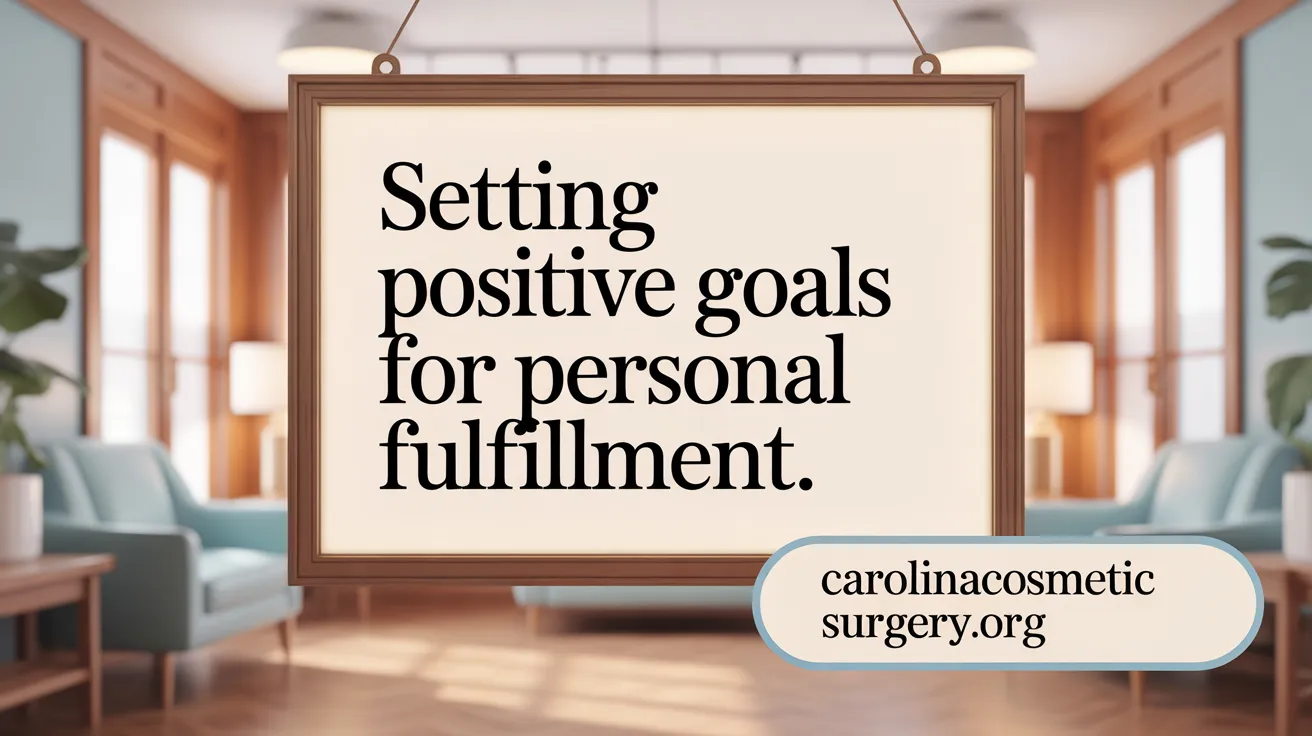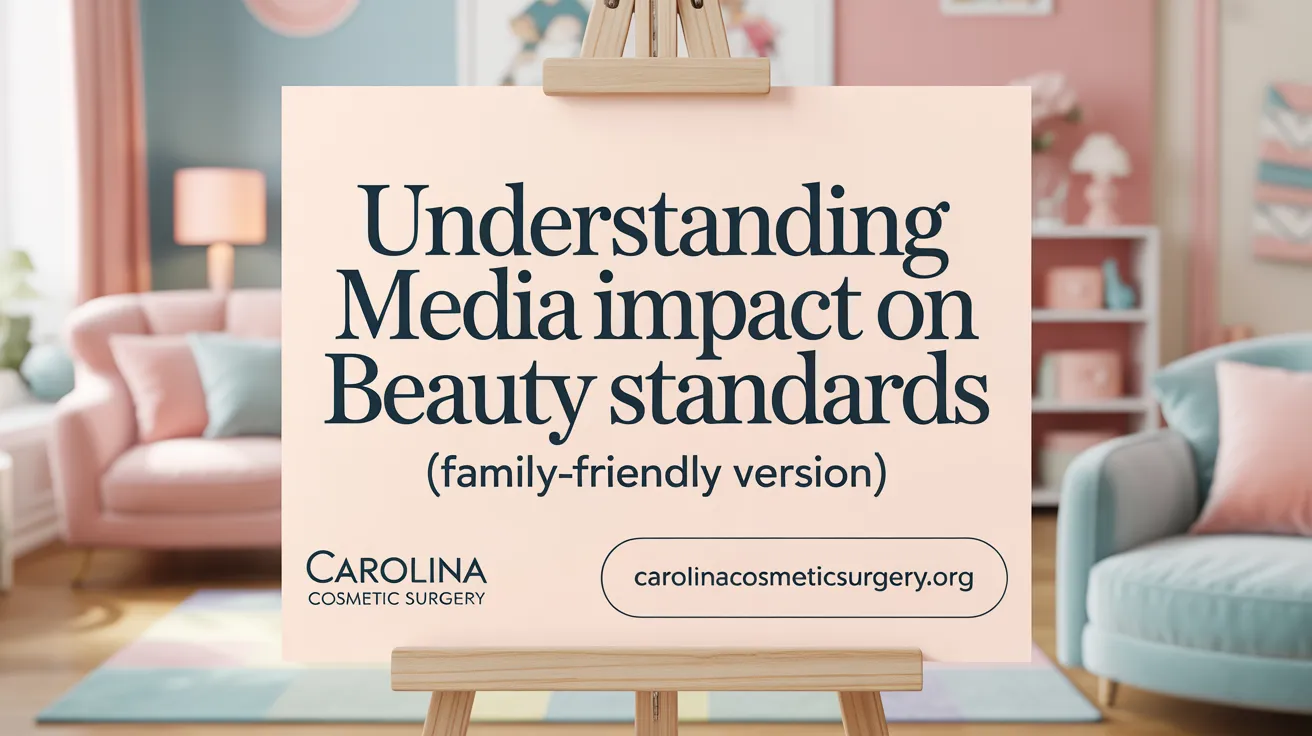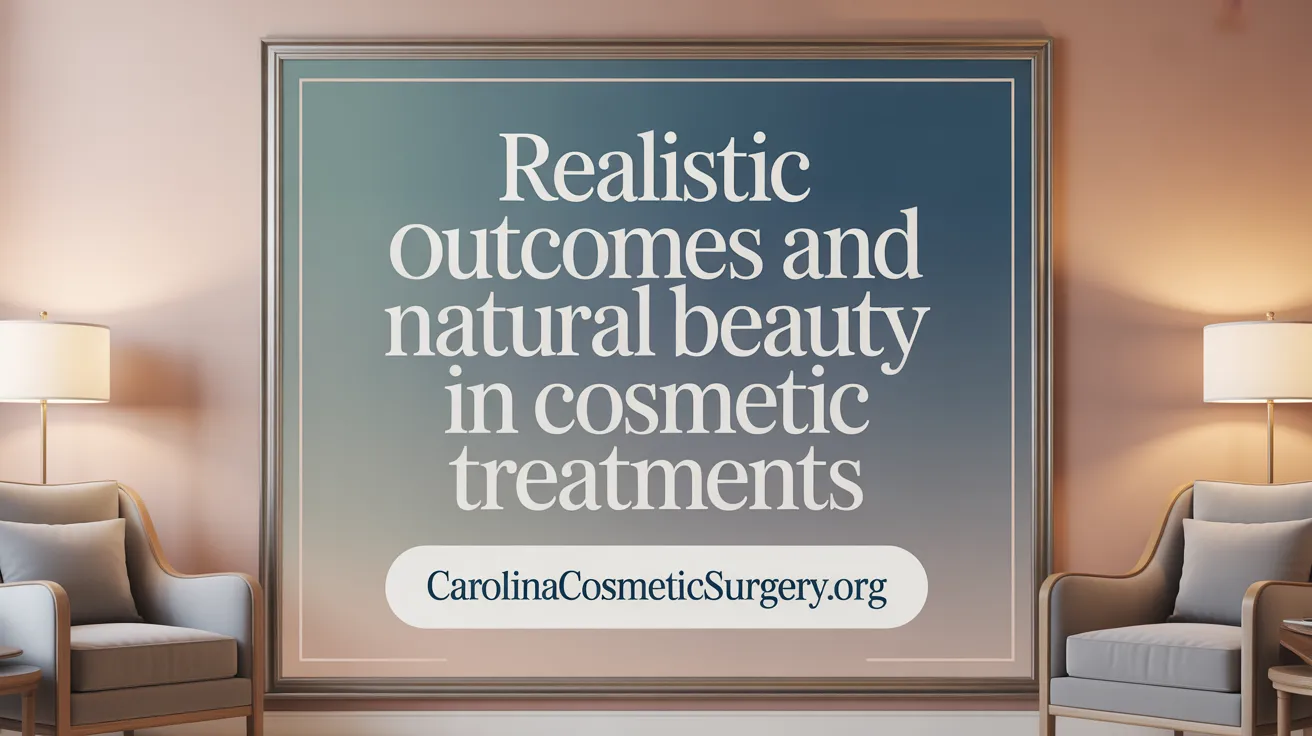Understanding the Role of Expectations in Cosmetic Procedures
Cosmetic enhancements offer transformative opportunities to improve appearance and boost self-confidence. However, the key to achieving satisfaction and emotional well-being through cosmetic surgery and treatments lies in managing realistic expectations. This article explores why setting practical, achievable goals is essential, how expectations influence patient outcomes, and the factors shaping perceptions of aesthetic results in today's beauty-driven culture.
<!-- VIDEO:eyJsaW5rIjoiaHR0cHM6Ly93d3cueW91dHViZS5jb20vd2F0Y2g/dj0xWmwyZlRZdmtuMCIsImltYWdlVXJsIjoiZGF0YTppbWFnZS9qcGVnO2Jhc2U2NCwvOWovNEFBUVNrWkpSZ0FCQVFBQUFRQUJBQUQvMndDRUFBa0dCd2dIQmdrSUJ3Z0tDZ2tMRFJZUERRd01EUnNVRlJBV0lCMGlJaUFkSHg4a0tEUXNKQ1l4Sng4ZkxUMHRNVFUzT2pvNkl5cy9SRDg0UXpRNU9qY0JDZ29LRFF3TkdnOFBHamNsSHlVM056YzNOemMzTnpjM056YzNOemMzTnpjM056YzNOemMzTnpjM056YzNOemMzTnpjM056YzNOemMzTnpjM056YzNOLy9BQUJFSUFGTUFsQU1CSWdBQ0VRRURFUUgveEFBYkFBQUNBd0VCQVFBQUFBQUFBQUFBQUFBREJBQUJBZ1VHQi8vRUFEZ1FBQUlCQXdJRUF3WUZBd01GQUFBQUFBRUNBd0FFRVJJaEV6RkJVUVVpWVJReWNZR1I4QlZDb2JIQkl6UFJVbUtTQmlSamNvTC94QUFZQVFBREFRRUFBQUFBQUFBQUFBQUFBQUFBQVFJREJQL0VBQjRSQVFFQUFnSURBUUVBQUFBQUFBQUFBQUFCQWhFU0lRTXhRUk15LzlvQURBTUJBQUlSQXhFQVB3RDdHODhUVGkzSTFGMExjdHNWdElZMU9WWEdLekJieHd1OG9EY1J6NWl6Wng2ZWxYSEdWbFpvM0hEYmNxVG5COUtpRVZrNGorSnJqT0Z3QjJ4MXB0MmNTcUVDa0gzKzRyTWpzWDBaSUdNN2RhV0lpUmlReEJiL0FISGVyNDNLSElsNWVUUVRLa2NCY0U0OHBwMkl0b0JmT284ODBrMk1qQmJQeE5ETEVOZ08yZWVOUnpSUEhWYWRFT3N1dEJuSTJZZHRxWGpoSVFoc2pUc1BXa2M0a1p3eDFrQUU2dW4yYXN5RVl6S3d6eXkzT3EvSzZMaTZzYUJlOUJ2YllYU0xHWElUTzRIWDQwaUMyb2tPK1QvdU5aRWpIT1hiSEwzalJQRllManZvL2FXYVFIUDBHZHZwV0xPNmU0bGxWZ3VuUGx4MHBYVS9MVy8vQUNORGlWVXlZaVFEMmJOVitkdnN1RitPc2t3TXJSbEdHbmNFOWFVZnhOUmNDQUsybzhqcE9Qdm5RQStPY2pmTnpXbFdNSGlBL3dEMXJPTVZuZkZWYWRSV3dvMUVIdWFGUGllMmJoRUhPNEkrTkxMcGJjTXhIY09hMUdnalhNV1JrbHVlUVRSd3NUWTBrWktLY2tBOGdhS1hNVEltZ3NHNmpwVzBZc29Za1lJckUwc2NBYVdUVmdEcHZXZDk3RVltdStGSVUwTWNkZ2FsWGF6eFhjQ3pvaEN0bkdvWU94eC9GWFFmS01YTU04NnhhSlJHVmJMTHB5R3Jkdkd5TjU5ajZkYVh1MnVvcnlPZjJpR095VCs2cjgyMi9mTkRlM2x1L0VMYThoblFXaXBxeGc2aWVtUFRGRTFVbXBDT00zb29yaXY0RlptVjVjeWxqSnhBTld3YmZsOGlCOEZGZGlYYVkvOEFxUDVvSmRTNVVNdW9ESkdkL3BXK0U2WEhLZndXQ1JFNHM5d1pGaUVUU0NUQllaMUg0RXRnL0lkS0JQNEhCSThiOGE1VjQwRWV0Wk55b09jVjJKRGc1b0preG5WdGp2V3NrVTVJOEF0c2FUY1hSM0pKTGpmWWpmYjEvU2pmZ3NIQ1NQajNIa1lzR0xBbmNZNTRybzQyN2JWRks0d0dCd0IxNlU5UVBNOEt3anVURkpkWHdsamtLS29jSFh1Y2JEbjJ5ZW5QYllEai9CMmtBVzV2ZHRVdmwyQzVMTVd6amJtMWVxT2tNQ3hBeDNvYVF3ckdZRWhSVUFJMEJBQnZ6MitkTFJPWFkyTUV2OVpYdkU0Y3VmNmpnQjhxT2c1REI1ZE9WRy9CWU9IcFc0dUY4b1VsQ3E1QTlBTWRxNkk4Mm9zT3RhNlUrSnVTL2dsdHFkbm11R1Y0MmpLbGhnQmd3T051Zm1OTUo0VmJNMGhMekZaSTJqMEY5Z0RqT1BYYm4yMnB4MVU0TGJBVnBTcUVldktsWUhPYi9wMjFjbEJOY0pBUVFJbGNCUURxeU1ZNWVZODY2bGhaeDJhU0JKSkgxblBuSU9QMHErS29VTTdCUm5HNStWSDMwN2JHcHNLdE5heDNNVVJremtEYkJveGpoZUZvTkt1b1hES2Y1clZ1TVFwditVYjBLR0IwbW1jc2NPY2pCcm1yTm1QMnRFQ0NDM0FVWUFFaEg4R3BUUTlhbExSdVQ0ekRQYzI0czFkR1l0cllaR3BsQkJIcFQwY01pVzhhTExvS2pEWUFJTkxXZHNMV2E0dUppZlYyOTVzZFNmNHB5T2VLV1BYQzZNT2V4cDJiS1VHVVlsYmNrNkJuOWE0Y25GbUlsYXh1RTh2dThURGY2ZHhqZlk5VDM1ZGUwd2RabTE4OUk1Zk9rYmk4ZUtWZ2JXVjR3QjVsR1RrNDJ4OHoxNmV0YjRmeXVPUjdLcGsxTmFUNlF5QlVRa1lBWG1kdXVTUGwwcmEyNGNpQ1cwbFZDZUlUbnlyZ0VhUnQrbnFlOU5qeEJ0UUJzN2pVVlZ0bDJHY2JiOXM3MVl2aVZjbTFuR2pmR25tTldOdjMvd0Exb29nSWd5Y1NPeG5Vc01oVllqbUR0alR5K1BMcGpyY1VmdktQRDVpcmtISk8yd3dEa2pQNW05ZVhiQWM5dndCeExXZFR0a2hjaXFXL1BuSnRKZ0VRdDdwM09SZ0Q2L29hQ0J0cldKK0pISmJTUjYxVXNUNWdTckVnY3NldnJuZnVUand1MkVKaUhFMEY5Wjg1em50bm5WRHhIemFmWkxySk9QN2ZyOS9lYWkrSU0wTHlMYVRncmp5c3VNNXovajdGTTJvL0RMZU45UVZtYkt0bG16dU1ZL2I5NnRmRG9RMHJaa3pMcTFIVjM3ZlNxOXZZdnA5a3VNNXdUcDI2am5XcGIweHU0TnJPUXY1Z0FjOCtYMC9hZ01Id3lCeU5Xc2hWVlFOWFFEQStmcld2dzYzTEZqcjN5T2ZROVBoV0g4Uk1jYk0xcGNIR2RsVEoyT1A4Zld0TGVzSDBHMW5KTE1CaGR0dldqb0N4K0cycGllUGhuU3dVRTUzT09WT1d0dkhib3dpSHZIVVR0dWNZK3hTYTN6bU5XVzFtL3VCV0RMZ3FOT2MveFR0dEx4b05mRGtqem55eURCK2xUU0V0WjJXYmhQeVlnTDlOcUxKSmNwZEpIRmJoNFNNdElYeHBQYkh3cVJSUlpqbUkvcUJOT2ZTaWdjS0k1VXlkOERuWE5iTnM0S01Ia2YwcTZXaWdDcnM4aWduSVhHTWVsWFNOZHpBbHpGdzVjbGM1eFE0TEtPRnc2cU00d0NCUXZEN29UeHpOSk1wVXVkSFRBNVU3blRGNU44RGIxcHkzUmRYdHpWbGFhOXVRVDVWQVZSMjUway9oc2hHbHIrNUtuR1FXNllJcnBoVUVqdXE2ZFNqT0I4YTQwODhVemlhTHhHVkN3QTBoTTlBY250eU5iWTNwV1BwcWF5a0dkTjFNWE9OMkp3Y0RyanYvQUJ0aXJGbkpoY1hjd0lWVlByZ1lKK0pwUXlnZ09mRVpOdVo0ZU1nbmI3OUt2akJJU3IzenFYaURoaW02RFk5K3gvWG5WckcvRDVHa1l0ZXpjUDhBS29jN2M5enY2OU8xTlc4VHhxd2VSbnl4STFIT0IwSDB4WEthWW5XMzRoS3FuL3g3anJqYmJrUjk1cTN1UXZPK25EYjV6RWM0VTc3Y2gyelZiRHMxVERWU0MybHd3WFJmT1ZLRHpBZGUrYy9DaSt6ejZCaTdPUVcvTHp6eTY5TUVmUHBSc0dnTVZGT2FVRnBPTk9xOGtidnRqTytmMndLeUxHNFdOb3hldUF3WVowN2pPK3h6dFJzSGdjMUZiSnhTbnMxeHB4N1c1ZmlGczR4dDJxU1dOeEtDb3ZYUU1nVWtMdnl3VHo2ODZOaDBWR0tMMHBXMHQ1SVdjeVR2S3A5MVc1S00vcjJweFJnWU5SVTFWcUhNRVhiQXBoSmxNalI3NmxHK1JWVy85dE1xTWdiR2lLTjk4RnY0cmwrcEtTK0tXMFRsSGtYSTlhbGJrOFB0NUdMTXB6NkdwVTd5VjBBTGVTQ2FSM1lPSGJPckgzeXB4NUJERHFsSTJIMW9DMzhUMzdXWVI5WVV0cTArWGJwbnZTMWlicTZrdXJmeE8zYmh4dURHN0FZZjRZclNkczUxMGJMTEpKclgzV1hhZ3pSbzZsU0JvT3pESE1kcWRNU0ZRdWtZSGFoQzN5eHpuVG4vQUZtcW1lbHlsT0dpcUFpS0ZHd0FISWRxSEltV0hsR090TlN3eFF5RjNsbGJVdUZqMWJESFVVckhjVzF3RzRlcFZWdEpZdWNFK2xPZWZHWmNmcXZtMk1ESjJGUmxEY3dEVFJzMW50WDRVakk3cjVIMUU0OWFLbGxHRlVPU3pBYm5KR1RWZnJOK2h1RVJ5eFdWR0tjU3dBdW5aaWVGcHdBWFAxb0VVbG5lSmNMWW5WTkRzVmJPeFBMYnJWVHpRdVVZcTZyd3RJdkU3UkxpUkpZbVZtVmt5eTdqdUR2VDB0cEdrVE5IRVhjRHlwcnhxUGJORjhzMk9SRldCYkI1MGRWb2xyYkI0RmFXSm8yTzVHcmNWUmppZzFjZVVzU2NnTGthUjI1MUdYbXh4OW5MdjBwTTZ5TUhBNm1qYkJTVHl4UUEwTXFob1dmUWR3ZFIzb3J3U3J3bXQ5Sk92K29KR09OT09ucnlxYjVaclpmVU1GdzNETWM1UlFCNWFGNGhhOFJvUzF6d29rWUdRNnNFOXQ2NkJHTTB0YXF6eHZ4MXpsempJNlZuZTBXR0F5a0FoZ1FleHE2Vm5ndXkvd0QydHpGQkhqM09CcTMrdFNwMnJzMktvMUtsVVRDc1dkbEoyMGlpSjd1OVNwVENtUldPR1VFZW9wZTQ4UHRKakUwa0NrcWNnamJuejVWS2xHTW05ajRZMGhkbEFBSElBY3F5akV6eUtUNVZBd0tsU2dJckV5c3A1WTVWU0lrWS9wb3E1NTZWQXpVcVVqYkJ6dlE1MlpWQlU0M3FWS2RFRm9id1JUS1RMR3JiZGFsU3M4NXVERnl4YVEvalN4YUR3eEdNSnFPQmowcnNEbWFsU3RzdlVUUG9VTEZwcEZZNUFBd1ByUmZ5MUtsUWNWVjFLbE1QLzlrPSIsInRpdGxlIjoiV2h5IEFyZSBSZWFsaXN0aWMgRXhwZWN0YXRpb25zIENydWNpYWwgRm9yIFBsYXN0aWMgU3VyZ2VyeSAuLi4iLCJzbmlwcGV0Ijoid2UnbGwgZGlzY3VzcyB0aGUgaW1wb3J0YW5jZSBvZiB1bmRlcnN0YW5kaW5nIHdoYXQgcGxhc3RpYyBzdXJnZXJ5IGNhbiBhbmQgY2Fubm90IGFjaGlldmUuIFdlJ2xsIGNvdmVyIGhvdyByZWFsaXN0aWMgZ29hbHMgY2FuIGxlYWQgdG8gLi4uIn0= -->The Critical Importance of Managing Realistic Expectations

What is the importance of managing realistic expectations in cosmetic enhancements?
Managing realistic expectations in cosmetic enhancements is crucial for ensuring patient satisfaction and emotional well-being. It involves aligning patient goals with what is achievable based on individual factors such as facial anatomy, skin quality, age, and health. Effective expectation management includes honest communication, visual aids, and thorough education about procedure limitations. This helps prevent disappointment that can arise from unrealistic desires, such as expecting to look exactly like a celebrity or expecting dramatic, instant transformations. Emphasizing subtle, natural improvements encourages results that are harmonious with a person’s overall appearance, fostering confidence and trust.
Patients who understand what their procedures can realistically accomplish are more likely to be satisfied with their results. Clear communication about the recovery process, potential risks, and the gradual nature of healing further supports realistic expectations. Overall, this approach promotes safe, positive experiences and long-term fulfillment with cosmetic enhancements.
How do realistic expectations influence patient satisfaction and outcomes in cosmetic surgery?
Properly set expectations significantly impact how patients perceive their results and their overall satisfaction. When patients understand the realistic scope of what can be achieved, they are less prone to disappointment and more likely to value their natural, subtle improvements.
Effective expectation management involves detailed consultations, where surgeons explain potential outcomes, share before-and-after images, and clarify procedural limitations. This transparency builds trust and helps align patient desires with feasible results. Patients who have realistic expectations tend to adhere better to post-operative care and are more emotionally prepared for the healing process.
Ultimately, when goals are appropriately set, patients report higher satisfaction, improved self-esteem, and a sense of accomplishment. Incorporating expectation management into the surgical journey enhances both psychological well-being and clinical outcomes.
How can patients set and communicate realistic expectations with their cosmetic providers?
Patients play a vital role in setting realistic expectations through active participation in their consultations. They should prepare by thinking about their motivations, desired outcomes, and any concerns they have.
Using visual tools such as photos or digital simulations helps demonstrate achievable results, ensuring mutual understanding. Being honest and specific about their goals, preferences, and fears encourages open dialogue.
Questions to ask providers include inquiries about procedural limitations, recovery timelines, risks, and long-term results. Clear communication from both sides ensures that expectations are aligned.
Furthermore, patients should remember that cosmetic procedures are about enhancing natural beauty, not achieving perfection or drastic changes. Follow-up conversations and education about what the procedure can realistically deliver are essential for maintaining realistic expectations and achieving satisfaction.
Psychological Dimensions: Emotional Well-Being and Mental Health Implications
 Expectations significantly influence how individuals feel emotionally after undergoing cosmetic procedures. When expectations are realistic, patients often experience increased confidence and self-esteem, contributing positively to their mental health. Conversely, overly high or unrealistic hopes can lead to disappointment, emotional distress, and even the development or worsening of mental health issues like depression or body dysmorphic disorder (BDD).
Expectations significantly influence how individuals feel emotionally after undergoing cosmetic procedures. When expectations are realistic, patients often experience increased confidence and self-esteem, contributing positively to their mental health. Conversely, overly high or unrealistic hopes can lead to disappointment, emotional distress, and even the development or worsening of mental health issues like depression or body dysmorphic disorder (BDD).
Patients with pre-existing mental health conditions, especially BDD, are particularly vulnerable. BDD is characterized by obsessive preoccupation with perceived flaws that are minimal or nonexistent, often resulting in repeated procedures and persistent dissatisfaction. If expectations are not properly managed, individuals with BDD or similar issues may experience heightened distress, social withdrawal, or suicidal thoughts.
Research indicates that managing patient expectations through open, honest communication with qualified surgeons can foster acceptance of natural or improved outcomes. Preoperative screening for mental health conditions helps identify those at risk, allowing for appropriate interventions.
Media influences, especially social media, can reinforce narrow beauty standards, fueling insecurities and body-image concerns. Patients should be encouraged to view images critically and discuss their motivations with their surgeons.
While many patients report benefits like feeling more attractive and confident, the psychological impact depends on the match between expectations and actual results. Setting realistic goals and addressing underlying psychological issues are vital steps in promoting mental well-being after cosmetic procedures.
| Aspect | Impact | Recommendations |
|---|---|---|
| Unrealistic expectations | Increased dissatisfaction, emotional distress | Thorough consultation, mental health screening |
| Patients with BDD | Persistent dissatisfaction, risk of harm | Psychological assessment, therapy referral |
| Media influence | Reinforced insecurities, body image issues | Educate on media literacy, promote self-acceptance |
| Post-procedure outcome | Confidence boost when expectations align | Realistic goal-setting, ongoing psychological support |
Ultimately, understanding the psychological dimensions of cosmetic surgery emphasizes the importance of well-informed, realistic expectations to safeguard emotional well-being.
Societal and Media Influences on Patient Perception

What factors influence patients' perceptions of cosmetic surgery results, including societal and social media influences?
Patients' views of what cosmetic surgery can achieve are greatly shaped by external influences, especially societal standards of beauty and the pervasive presence of social media.
Cultural norms and beauty ideals often project an image of perfection, which can be unrealistic and difficult for most individuals to attain naturally. These ideals are frequently celebrated on social media platforms such as Instagram, TikTok, and Snapchat, where images are often heavily edited or filtered to enhance appearance.
Exposure to curated content, including celebrity photos and influencer images, creates a standard that many aspire to but cannot realistically reach. This phenomenon leads to social comparison, where individuals evaluate their appearance against highly idealized images, often resulting in body dissatisfaction.
Online communities and peer opinions further influence perception, fostering unrealistic expectations about surgical outcomes. Patients may believe that their results should mirror celebrity transformations or influencer successes, which are often the product of multiple procedures, filters, or surgical artistry.
The impact of these digital influences can cause individuals to focus more on superficial appearances rather than realistic, natural results tailored to their individual features and anatomy.
Overall, the combination of societal beauty standards and the curated depictions on social media significantly skews patients’ perceptions of what is achievable through cosmetic surgery, emphasizing the importance of honest, thorough consultations to set appropriate expectations.
Understanding the Limitations and Natural Outcomes of Cosmetic Procedures

What are the limitations and natural outcomes to expect from aesthetic treatments?
Aesthetic treatments, whether surgical or non-invasive, come with inherent boundaries determined by factors such as individual anatomy, skin quality, age, and the specific technique used. These limitations mean that results often lean towards subtle, harmonious enhancements rather than dramatic transformations. Non-surgical options like Botox, dermal fillers, or skin therapies—such as microneedling—are designed for minor corrections and tend to produce temporary improvements that require ongoing maintenance.
Surgical procedures like facelifts, rhinoplasty, or liposuction can deliver more pronounced and longer-lasting results. However, even these involve natural constraints imposed by a patient’s tissue elasticity, healing capacity, and the natural aging process. For instance, it’s unrealistic to expect surgical interventions to halt aging entirely or to eliminate every imperfection.
Psychological preparedness and realistic expectations are critical to satisfaction. Patients should understand that a successful aesthetic outcome enhances natural beauty and self-confidence rather than creating a new, drastically different appearance. This balance is achieved through personalized treatment plans that consider each person’s unique anatomy and health status.
Achieving beautiful, natural results also depends on aligning procedures with individual goals and circumstances. For example, correcting minor facial asymmetries might be straightforward, but expecting symmetry identical to a celebrity’s features is unrealistic. Furthermore, skin elasticity, the extent of skin laxity, and underlying skeletal structure influence what results are achievable.
Lastly, understanding the process of aging is essential. While some treatments can slow and improve aging signs, they cannot stop natural processes. Patients need to be aware that maintaining results involves ongoing skincare, lifestyle choices, and, in some cases, periodic touch-ups for extended benefits.
In summary, balancing expectations with individual limitations and biological factors is vital. Patients benefit most from open discussions with qualified clinicians, comprehensive knowledge of procedures, and recognition that aesthetic enhancements should promote natural harmony rather than unattainable perfection.
The Vital Role of Consultations and Educated Decision-Making

Why are thorough consultations and proper communication with practitioners significant in cosmetic surgery?
Thorough consultations and effective communication are fundamental in cosmetic surgery because they help patients develop realistic expectations and understand what outcomes are achievable. These discussions allow practitioners to assess each patient’s unique needs, medical history, and individual anatomy, guiding personalized treatment plans. Clear dialogue about the procedure, potential risks, and recovery process fosters trust and reduces the likelihood of misunderstandings.
Good communication also ensures that patients are aware of the limitations of each procedure, which helps prevent disappointment. During consultations, surgeons often share before-and-after photos and discuss typical results to align expectations. This transparency improves safety, enhances satisfaction, and promotes long-term relationships between patients and providers.
What guidance is available to help make informed and responsible decisions about cosmetic enhancements?
To make responsible choices, individuals should first seek consultations with qualified, licensed specialists who adhere to high safety standards. Gathering thorough information includes asking about the surgeon’s credentials, experience, and the facility’s accreditation. Patients should request details about what the procedure entails, its risks, and alternative options.
Researching and understanding potential complications like scarring, infection, nerve damage, and the need for future treatments is vital. Patients are encouraged to bring up their motivations and ensure their goals are reasonable and well-understood by the surgeon. Written consent forms, clear explanations about post-operative care, and realistic discussions about results help safeguard patient interests.
What educational insights should patients know about what to expect from various cosmetic procedures?
Patients should have a clear understanding of what each procedure involves, including the steps of surgery or treatment, expected healing times, and necessary aftercare. For example, non-invasive treatments like Botox or fillers usually offer subtle, temporary improvements and may require maintenance sessions.
It’s important to be aware of common side effects such as swelling, bruising, or redness, which typically resolve with time. Realistic expectations include knowing that significant changes, especially with advanced surgical procedures, often take months to fully reveal, and full results might require multiple treatments. Understanding the risks and costs beforehand empowers patients to make informed decisions aligned with their goals.
Through comprehensive education, honest dialogue, and experienced practitioners, individuals can approach cosmetic treatments confidently, helping ensure safe procedures and satisfying outcomes.
Embracing Realistic Expectations for a Positive Cosmetic Journey
Realistic expectations serve as the foundation for successful and fulfilling cosmetic enhancement experiences. By fostering honest communication, understanding limitations, and addressing psychological factors, patients are empowered to make informed decisions and enjoy natural, harmonious results. Navigating societal pressures with awareness and seeking guidance from qualified professionals further strengthens satisfaction and emotional well-being. Emphasizing patience, personalized care, and ongoing education ultimately promotes self-acceptance, boosted confidence, and a positive relationship with cosmetic procedures.
References
- Realistic expectations are important in Plastic Surgery
- Setting Realistic Goals for Cosmetic Procedures
- Importance of Realistic Expectations| London Consultation
- Does cosmetic surgery improve psychosocial wellbeing? - PMC
- Realistic Expectations are Key to Successful Plastic Surgery
- Will Having Realistic Expectations Make Me Happier With My Plastic ...
- Realistic Expectations: What to Expect from Aesthetic Procedures
- Continues the series: Realistic Expectations in Aesthetic Surgery
- Setting Expectations for Cosmetic Procedures
- Setting Realistic Expectations: The Key to Satisfaction in Facial ...
